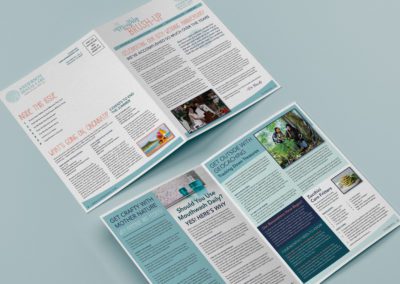Beautiful words have the power to capture our attention and evoke emotion, but some of them can also be misused. When used incorrectly, these words can lead to confusion or even offense. The purpose of this paper is to discuss three beautiful words that have unappealing meanings, explain why they are often misused, and provide advice on how to avoid misusing them.
In order to appreciate the beauty of language and its potential for communication, it is important to understand the true meanings of words so that they are used correctly. This paper will explore three beautiful words: embroication, tintinnabulation, and lassitude. These terms will be discussed in detail with respect to their definitions and common usages. Additionally, reasons why these words are often misused will be examined, as well as strategies for avoiding such misuse.
It is important for people to recognize the power of language and use it responsibly. Knowing the true meaning of a word helps ensure that communication is clear and effective. By understanding the implications of beautiful words with unappealing meanings, readers can learn how to properly use them in their writing and speaking.
Beautiful Words That Have Unappealing Meanings
When it comes to language, some words are so beautiful they almost seem too good to be true. Unfortunately, many of these words have unappealing meanings that can make them difficult to use in everyday conversation. The following three words are examples of such words: embroication, tintinnabulation, and lassitude.
Embroication
Embroication is a word that has a particularly lovely sound and look. It is derived from the French verb embrouiller, which means “to confuse” or “to entangle”. Despite its beauty, however, embroication actually refers to something rather unpleasant: the act of embellishing lies or exaggerating facts in order to mislead people.
Tintinnabulation
Tintinnabulation is another example of a beautiful word with an unsavory meaning. This word comes from the Latin tinnire, which means “to ring” or “to tinkle”. While it might sound like the name of a pleasant sound effect, tintinnabulation actually describes an annoying noise—such as the ringing of bells or other metallic objects—which can be quite irritating.
Lassitude
Finally, there is lassitude—a word that looks and sounds like it should refer to something delightful and peaceful. In reality, however, lassitude is used to describe feelings of extreme fatigue and listlessness. It is derived from the Latin lassus, which means “weak” or “tired”.
These three words demonstrate how even the most beautiful-sounding words may not always have positive connotations. As such, it is important to be aware of their real meanings before using them in conversation or writing.
Beautiful words can have unappealing meanings: embroication (embellishing lies), tintinnabulation (annoying noise) and lassitude (extreme fatigue).
Reasons Why These Words are Misused
Misusing beautiful words is a common problem in the English language. There are a few reasons why these words are misused, which can lead to confusion and misunderstanding.

Lack of Understanding
One of the main reasons why people misuse beautiful words is because they do not understand the meaning behind them. This is especially true for those who are not native English speakers or those who have not studied the language extensively. Many people assume that if a word looks or sounds nice, it must mean something positive. However, this is often not the case. For example, embroication means to embellish or exaggerate something, but it does not necessarily imply that what is being said is true.
Too Many Choices
Another reason why people misuse beautiful words is because there are so many to choose from. With so many options available, it can be difficult to decide which word to use in any given situation. People may end up choosing a word that does not fit with the context of their statement or one that has an unintended meaning. Additionally, some people may feel pressure to use more complex words when simpler ones would suffice.
| Reason | Description |
| Lack of Understanding | People assume that if a word looks or sounds nice, it must mean something positive. |
| Too Many Choices | Difficult to decide which word to use in any given situation; pressure to use more complex words when simpler ones would suffice. |
How to Avoid Misusing Beautiful Words
Beautiful words may sound pleasing to the ear, but they can often be misused due to a lack of understanding or an abundance of choices. To ensure that beautiful words are used correctly and accurately, it is important to know what they mean and when it is best to use them. This section will outline how to avoid misusing beautiful words by researching word meanings and using plain language synonyms.
Researching Word Meanings
The first step in avoiding misusing beautiful words is researching their meanings. While some words might look similar, their definitions can be vastly different. For example, embroication has nothing to do with embroidery; instead, it means exaggeration or embellishment of the truth. Tintinnabulation does not refer to tinkling bells, but rather the ringing of bells in a melodious manner. Lassitude does not describe something light-hearted or fun; instead, it is a state of listlessness and fatigue.
To avoid misusing these words, it is important to take the time to research their meanings before using them in conversation or writing. A dictionary can provide an accurate definition as well as examples of how the word can be used correctly in context. Additionally, reading literature written by authors who have mastered the use of language can be helpful in understanding the nuances between similar sounding words.
Using Plain Language Synonyms
In some cases, using plain language synonyms might be more appropriate than using a beautiful word with an unappealing meaning. For example, instead of saying lassitude which describes feeling tired and sluggish, one could say exhaustion or fatigue which convey a similar meaning without any confusion about its definition. Similarly, one could replace tintinnabulation with jingle bells or chimes for clarity and accuracy when describing a sound.
Using plain language synonyms also allows for greater accessibility for those who are unfamiliar with more complex words or phrases. By avoiding jargon and opting for simpler terms that everyone can understand, communication becomes smoother and clearer for all involved parties.
In conclusion, avoiding misusing beautiful words requires taking the time to research their meanings as well as considering if plain language synonyms would be more effective in conveying one’s message clearly and accurately. Doing so will help ensure that conversations remain accessible while still allowing individuals to express themselves eloquently through language.
research word meanings and use plain language synonyms to avoid misusing beautiful words.
Conclusion
Beautiful words can be powerful tools for expressing complex ideas. Unfortunately, when these words are misused, they can have the opposite effect of confusing and alienating readers. To avoid this problem, it is important to understand the exact meaning of any word you use and to consider if there is a simpler alternative that would better suit your purpose.
By researching word meanings and using plain language synonyms, writers can ensure that their intended message is communicated clearly and effectively. Although beautiful words may be tempting to use, understanding their true meanings is essential for successful written communication.






